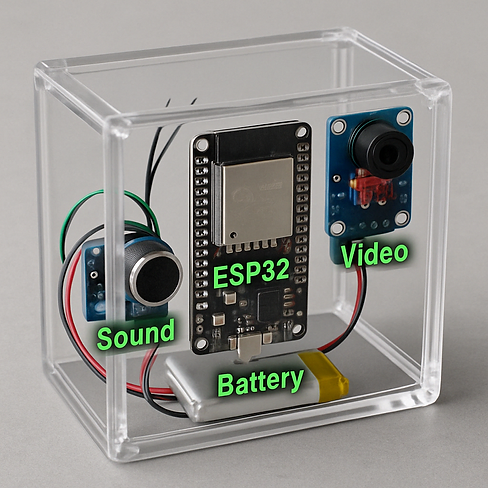Mosquito Trax

.jpg)
The Mosquito Borne Disease Threat
80% of Sri Lankans live in rural communities. These small towns covered in lush greenery and ample lakes, streams and other water bodies, also harbor a threat - mosquitoes. While Sri Lanka, with great effort and diligence, was able to reduce Malaria to negligible levels, Dengue remains a threat. In 2024, nearly 50,000 dengue cases were reported in the country, with 24 deaths. This is representative of a worldwide issue - 14 million cases of Dengue were reported worldwide in 2024, with over 10,000 deaths.
Managing mosquito diseases requires vigilance and education. Human initiatives to track and study mosquitoes contain an inherent risk of exposure to infection. This is where Mosquito Trax comes in.
Mosquito Trax
Mosquito Trax is a low cost, low power sensor infrastructure that leverages Machine Learning to detect and track mosquitoes. A sensor can be placed in a rural location for months on a single battery. Audio monitoring is used to detect mosquitoes, followed by video acquisition. A network of such edge devices can be distributed across communities, providing comprehensive and real time tracking of mosquitoes, with minimal human intervention.


Technology
Mosquito Trax is the outcome of two years of technology research, during which we developed algorithms for detecting and classifying mosquitoes from audio snippets, using object detection methods to identify mosquitoes in images with background objects, algorithms for detecting mosquito movement in video, and low power implementations in ESP32 and Raspberry Pi. Our research is outlined in several publications and presentations in IEEE Big Data, SPIE Digital Imaging, and NeurIPS Women in Machine Learning (here, here and here).